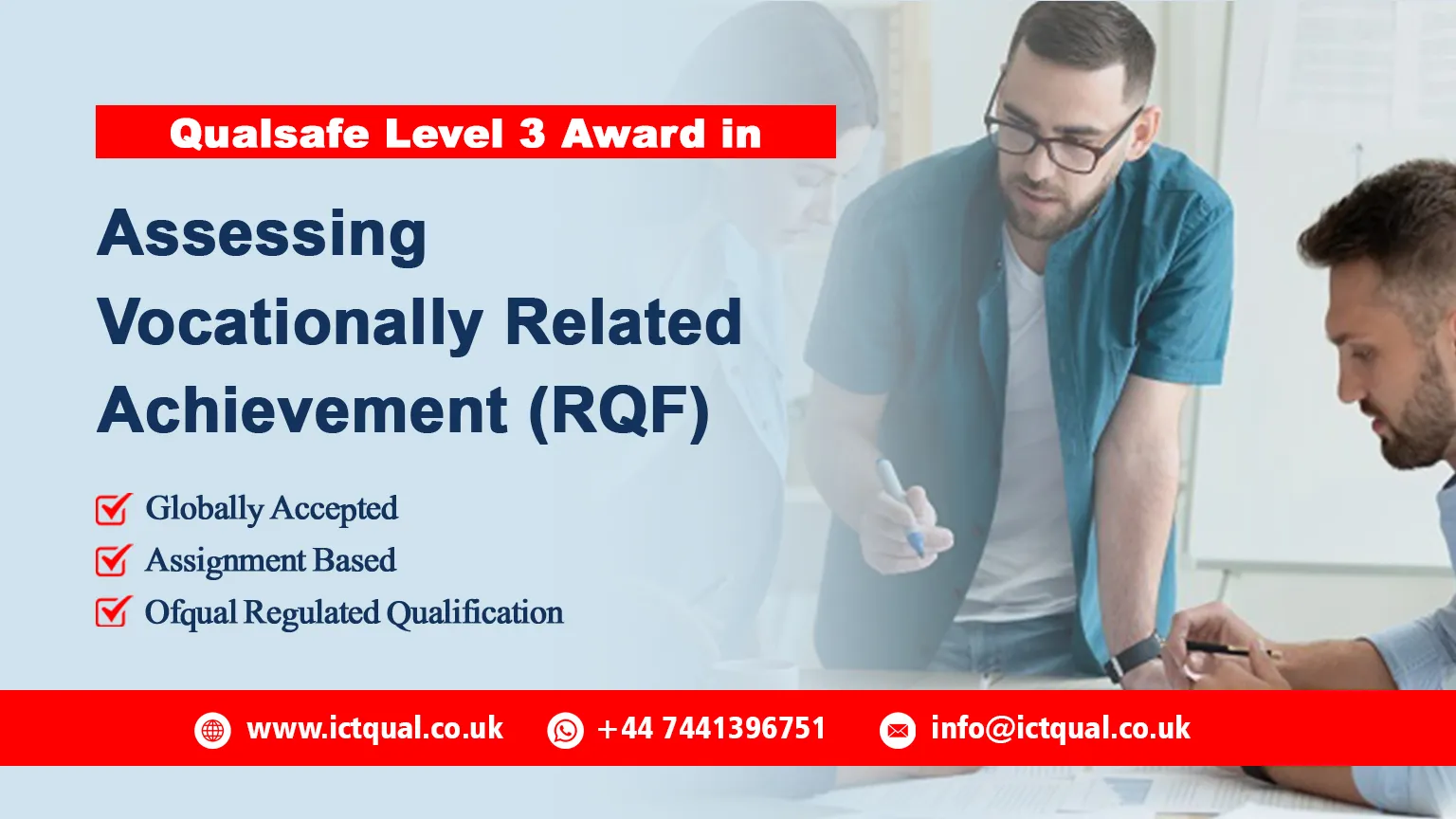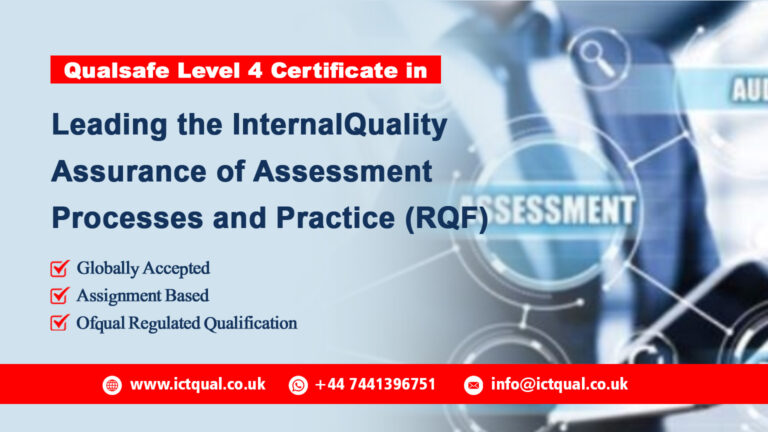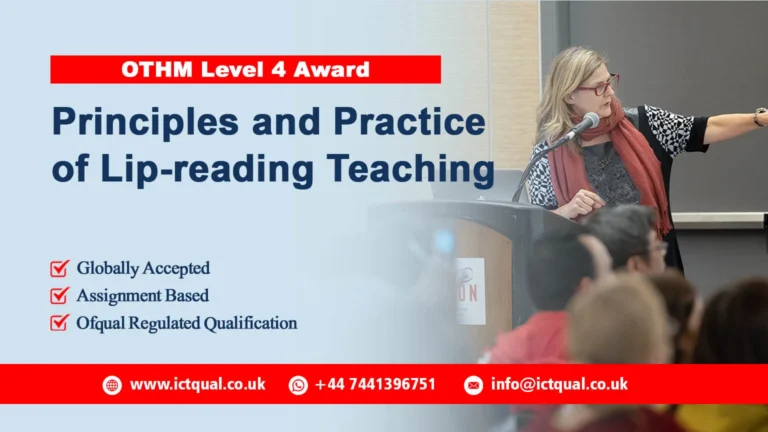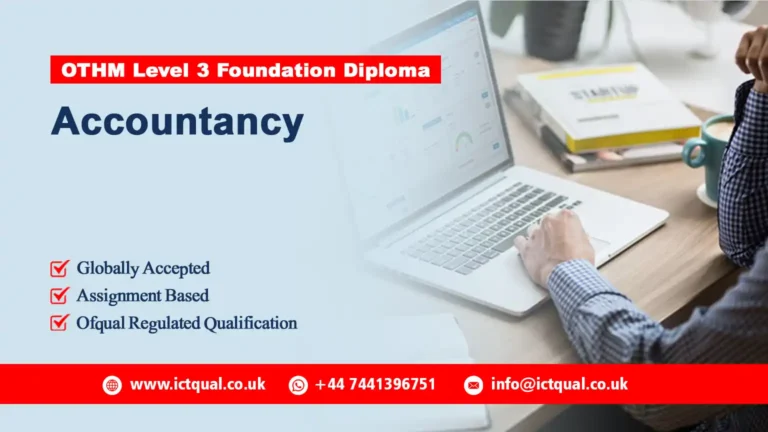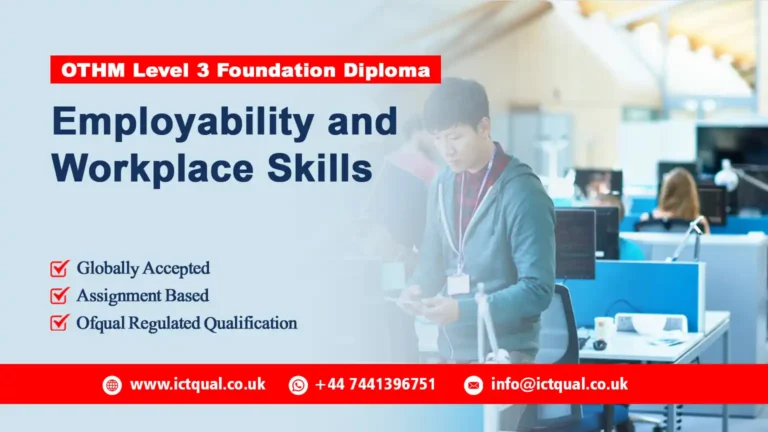The Qualsafe Level 3 Award in Assessing Vocationally Related Achievement (RQF) is a highly regarded qualification designed for individuals seeking to develop their skills in assessing vocational education and training. This qualification provides learners with the knowledge and expertise necessary to assess vocational competence in a variety of environments, including workshops, classrooms, or simulated work conditions. As vocational training continues to grow in demand across industries, obtaining a qualification in assessment is a valuable asset for those looking to advance their career in education and training.
This course is ideal for professionals who are already working in, or are looking to enter, roles that involve assessing vocational skills, such as trainers, tutors, assessors, and vocational instructors. The Qualsafe Level 3 Award aligns with the Regulated Qualifications Framework (RQF), ensuring that the training meets high standards of quality and rigor. With this qualification, individuals will be equipped to assess learners’ competence in vocational qualifications accurately and fairly, which is critical to ensuring high-quality education and training outcomes.
The award consists of three mandatory units that cover key aspects of the assessment process. These include understanding the principles and practices of assessment, assessing vocational skills and knowledge, and assessing vocationally related achievement. Learners will develop a thorough understanding of assessment methodologies, the role of an assessor, and how to apply assessment strategies effectively to ensure fairness and consistency. The course also emphasizes the importance of maintaining professionalism, adhering to relevant regulations, and providing constructive feedback to learners.
To enroll in the Qualsafe Level 3 Award in Assessing Vocationally Related Achievement, candidates are typically required to have a vocational qualification in their chosen field. Experience in teaching or training is also beneficial, as it allows learners to apply their existing knowledge to the assessment practices taught during the course. The qualification is delivered through a combination of practical and theoretical training, ensuring that learners gain both the knowledge and hands-on experience required to become proficient assessors.
Upon successful completion of the qualification, individuals will be able to work as qualified assessors in various educational and vocational settings. This opens up opportunities for career advancement in sectors such as further education, apprenticeships, and workforce development. The skills gained from this award are highly transferable, making it a versatile qualification for those who are passionate about improving vocational training standards.
The Qualsafe Level 3 Award in Assessing Vocationally Related Achievement (RQF) is a valuable step for anyone looking to enhance their career as an assessor in vocational education. The qualification not only provides individuals with the skills and knowledge necessary to carry out effective assessments, but it also plays a crucial role in ensuring that vocational qualifications maintain their integrity and relevance in today’s ever-evolving job market. By becoming a qualified assessor, individuals can contribute to the development of skilled professionals in their respective industries.
The Qualsafe Level 3 Award in Assessing Vocationally Related Achievement (RQF) is a comprehensive qualification designed for individuals aiming to develop their skills in assessing vocational competence. This qualification equips learners with the knowledge and practical expertise required to effectively assess learners’ achievements in vocational settings. It is ideal for those involved in vocational education and training, including trainers, instructors, and assessors.
This qualification provides a strong foundation for understanding the principles and practices of assessment. Learners will gain insight into how to assess vocationally related achievement, including practical skills and knowledge in both real-world and simulated work environments. The course covers essential areas such as assessment methods, regulatory compliance, fairness, and providing constructive feedback to learners.
Upon completion, learners will be qualified to assess vocational skills and knowledge, ensuring that training outcomes meet industry standards. This course provides the essential skills to carry out assessments with professionalism and integrity, contributing to the growth and quality of vocational training programs.
The Qualsafe Level 3 Award in Assessing Vocationally Related Achievement (RQF) has 2 units that Trainee assessors are required to complete in order to achieve the qualification. Qualification unit 1 has 24 GLH, Credit value of 3, Qualification unit 2 has 39 GLH and Credit value of 6.
Qualification Unit 1
| Sr# | Unit Title |
|---|---|
| 1 | Understand the principles and requirements of assessment |
| 2 | Understand different types of assessment method |
| 3 | Understand how to plan assessment |
| 4 | Understand how to involve learners and others in assessment |
| 5 | Understand how to make assessment decisions |
| 6 | Understand quality assurance of the assessment process |
| 7 | Understand how to manage information relating to assessment |
| 8 | Understand the legal and good practice requirements in relation to assessment |
Qualification Unit 2
| Sr# | Unit Title |
|---|---|
| 1 | Be able to prepare assessments of vocational skills, knowledge and understanding |
| 2 | Be able to carry out assessments of vocational skills, knowledge and understanding |
| 3 | Be able to provide required information following the assessment of vocational skills, knowledge and understanding |
| 4 | Be able to maintain legal and good practice requirements when assessing vocational skills, knowledge and understanding |
This course is designed for:
- Aspiring Assessors:
- Individuals looking to begin a career in assessing vocational qualifications across a wide range of sectors. The course provides a solid foundation for those entering the profession and equips them with the knowledge and skills necessary to assess vocational competence.
- Vocational Trainers and Instructors:
- Professionals who are already teaching or delivering vocational training programs and wish to expand their role by becoming qualified assessors. This qualification enables trainers to assess their own learners or support assessment within their institution.
- Apprenticeship and Workplace Assessors:
- Those involved in apprenticeship programs or workplace training and development who need to assess learners’ performance, skills, and knowledge. The course enables them to carry out assessments that meet industry standards and regulatory requirements.
- Internal Quality Assurers (IQA) and Managers:
- Individuals responsible for quality assurance or managing training and assessment processes within educational or workplace settings. This qualification helps them gain a deeper understanding of assessment practices, ensuring that they can effectively support and oversee assessors.
- Vocational Coaches and Mentors:
- Professionals who provide guidance and support to learners in vocational training environments. This qualification allows them to formally assess learners’ progress and provide targeted feedback to enhance learning outcomes.
- Educational Institutions and Training Providers:
- Staff at colleges, vocational institutions, or private training providers who are required to assess learners’ performance in courses, workshops, or practical training scenarios. This course ensures they are equipped to carry out assessments in a fair, consistent, and compliant manner.
Here are the outcomes for each of the listed study unit:
- Understand the Principles and Practices of Assessment:
- Explain key concepts and principles related to assessment in vocational education.
- Understand the roles and responsibilities of an assessor, including maintaining fairness and integrity throughout the assessment process.
- Identify the different types of assessment methods and their applications in vocational training.
- Plan and Prepare Assessments:
- Develop appropriate assessment plans tailored to specific vocational qualifications and learner needs.
- Ensure that assessments are valid, reliable, and aligned with established criteria and learning outcomes.
- Prepare assessment resources and materials necessary for effectively assessing learners in vocational environments.
- Assess Vocational Skills and Knowledge:
- Carry out assessments that measure vocational competence in real-world or simulated work conditions.
- Use appropriate assessment techniques such as observation, assignments, and oral questioning to evaluate learners’ skills and knowledge.
- Gather evidence that accurately reflects learners’ achievements and ensure it meets regulatory standards.
- Make Assessment Decisions and Provide Feedback:
- Make informed and justifiable assessment decisions based on the evidence collected during assessments.
- Provide constructive, clear, and actionable feedback to learners that supports their development and learning progress.
- Ensure transparency in assessment decisions and adhere to organizational and regulatory guidelines.
- Maintain Records and Comply with Regulatory Requirements:
- Keep accurate and secure records of assessments, ensuring compliance with organizational policies and regulatory standards.
- Understand the importance of quality assurance and how to contribute to internal and external quality assurance processes.
- Maintain professional conduct and ensure that assessments meet the needs of diverse learners while upholding inclusivity and fairness.
- Contribute to the Improvement of Vocational Training:
- Reflect on assessment practices and identify opportunities for improvement in vocational education and training.
- Collaborate with trainers, learners, and other assessors to enhance the overall quality and effectiveness of vocational qualifications.

